*This post may have affiliate links, which means I may receive commissions if you choose to purchase through links I provide (at no extra cost to you). As an Amazon Associate, I earn from qualifying purchases. Please read my disclaimer for additional details.
Garbage disposals are great – there’s no questioning it. They make mundane kitchen chores, like doing the dishes, faster.
Without worry, you can drop eggs, peel carrots, scrape leftovers down the drain, and leave the rest to your disposal appliance. A good disposal keeps funky smells out of your trash can and keeps your kitchen cleaner.
Unfortunately, garbage disposals aren’t bulletproof. There are things like uncooked rice, fruit seeds, and other hard items that shouldn’t go inside, no matter how premium your appliance is.

Once or twice may be no big deal, but repeatedly putting the wrong things down a garbage disposal will break it and cost you a lot of money in repairs.
Ensure you and anyone else in your kitchen understand what can and can’t go inside a garbage disposal. Keeping these eleven things out of your disposal will make it last longer, avoid foul odors, and keep your disposal working the way it’s supposed to.
Here’s a list of things to avoid to ensure your appliance is always in great shape.
Table of Contents
Old Coffee Grounds
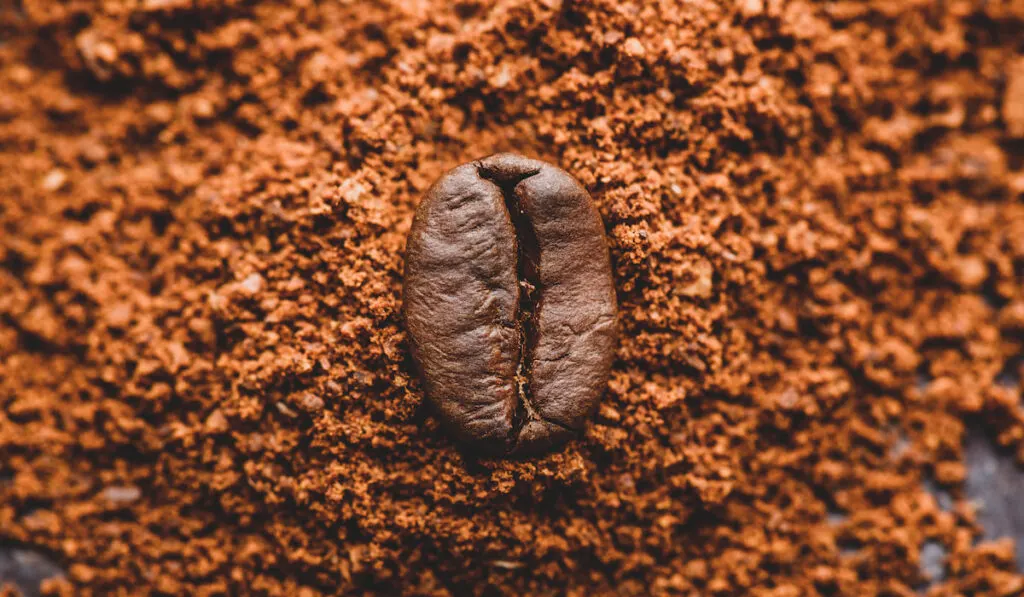
Dumping your spent coffee grounds into the garbage disposal seems like it would be a good idea. Many people use coffee grounds as short-term odor relief when a trash can, drain, or something else smells funky.
However, putting coffee grounds in your garbage disposal will gunk it up and block your drain lines.
They’ll spin through the disposal and end up on the other side, where they’ll stick together and form sticky clumps that will mess with the water flow.
These sticky patches of coffee grounds are extremely hard to clear, and you’ll likely need a professional plumber to come to snake your drain.
Bones

Don’t make the mistake of sticking any bones down your garbage disposal. Fish bones may be the only exception because they’re thin and easier to grind. However, chicken bones, steak bones, and any other type of bones should stay out of your garbage disposal.
It will take too much power to break the bones. Even if your appliance can break down those chicken wings you had for dinner, it will shorten the disposal’s lifespan and cost you more money in the long term.
Hard Shells
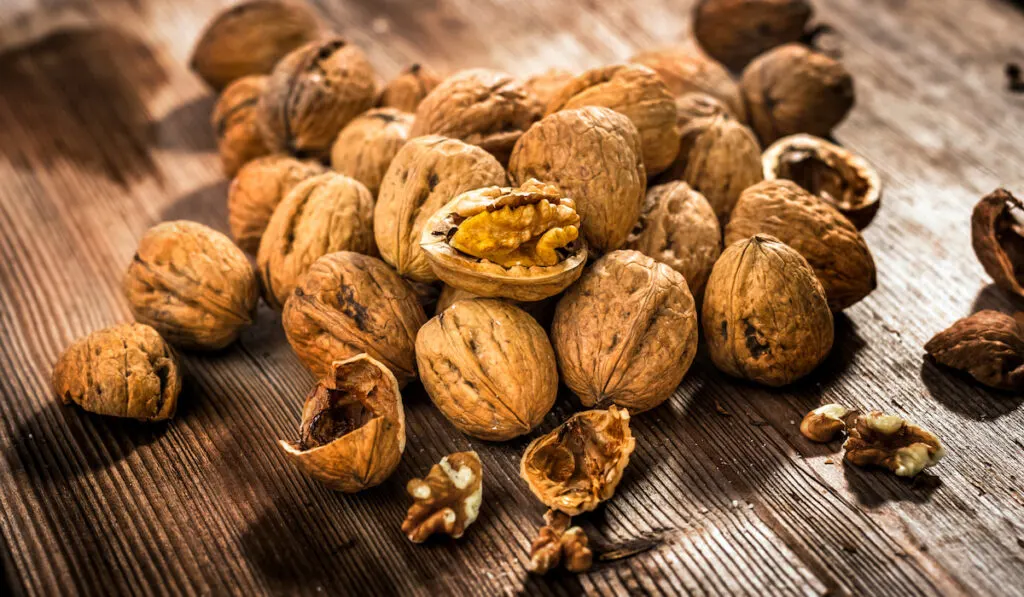
Walnut shells, lobster shells, and even boiled peanut shells should go in the trash instead of the garbage disposal.
The shells, whether raw or cooked, have strong fibers that make them very hard for the disposal to break. They’ll spin around in the disposal for minutes before they’re small enough to fit in the drain.
Even then, your appliance really takes a beating processing hard foods like shells.
Eggs shells are an exception because they’re easy to break and go down the drain without difficulty.
Occasional eggshells are fine but avoid putting too many into the drain. Leftover membrane stuck to the shells can wrap around the impellers and make it easier to clog.
Fruit Pits
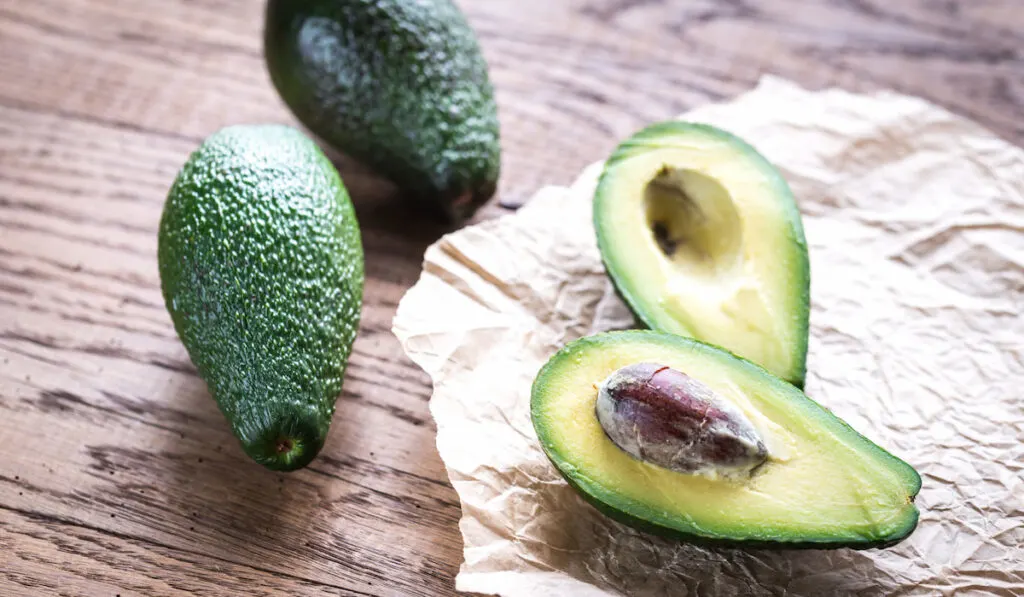
Stone fruits are some of a garbage disposal’s worst enemies. Peaches, avocados, cherries, and plums have very hard pits that will seldom go through your disposal.
When you put a fruit pit in the drain, you’ll hear a loud crunching sound of your appliance trying to grind it down. However, most of the time, you’ll have to fish your hand into the disposal when it’s off to get the pits out and throw them in the garbage.
Oats

Raw oats and other absorbent foods, like grits, can have the same effect on a drain as coffee grounds.
They’re usually small enough to go through the grinding process and come out the other side. However, once through the disposal, they grow larger as they soak in water and will stick to other oats close by.
Oats can build up quickly inside your pipes under the disposal and reduce water flow in your drain.
Fibrous Foods

Foods with long, thin fibers are troublesome for garbage disposals, because it’s easy for the stringy parts to wrap around moving components and affect the appliance’s performance.
Rather than going down the drain, they’re stuck there for days and weeks, causing bad smells and making it harder for other foods to go down smoothly.
Avoid putting foods like celery stalks, pumpkin, squash, and corn husks down the disposal. If you do, make sure they’re chopped into very small pieces, so the fibers are shorter.
Grease
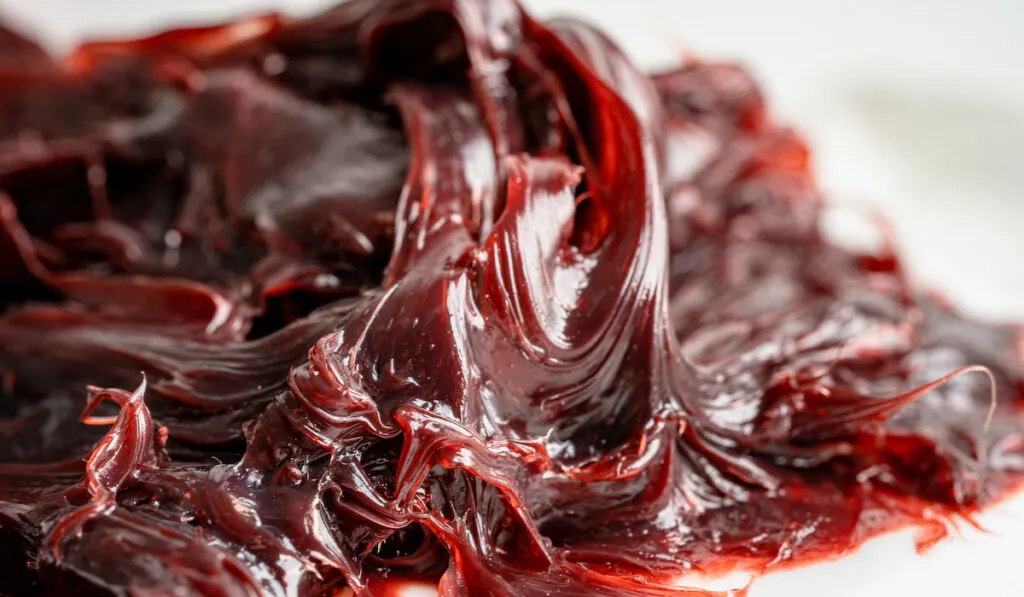
This may seem obvious, but there’s a call from a homeowner to a plumber daily complaining about garbage disposal problems caused by dumping grease down the drain.
No grease should go down your disposal, the same as any other drain. When the grease cools, it turns into a solid that can block pipes and cause a lot of plumbing issues.
Even if it doesn’t block your pipes, the grease hardens and can cause a sticky slime that covers the appliance, making it harder for it to grind down other food that passes through.
Pasta
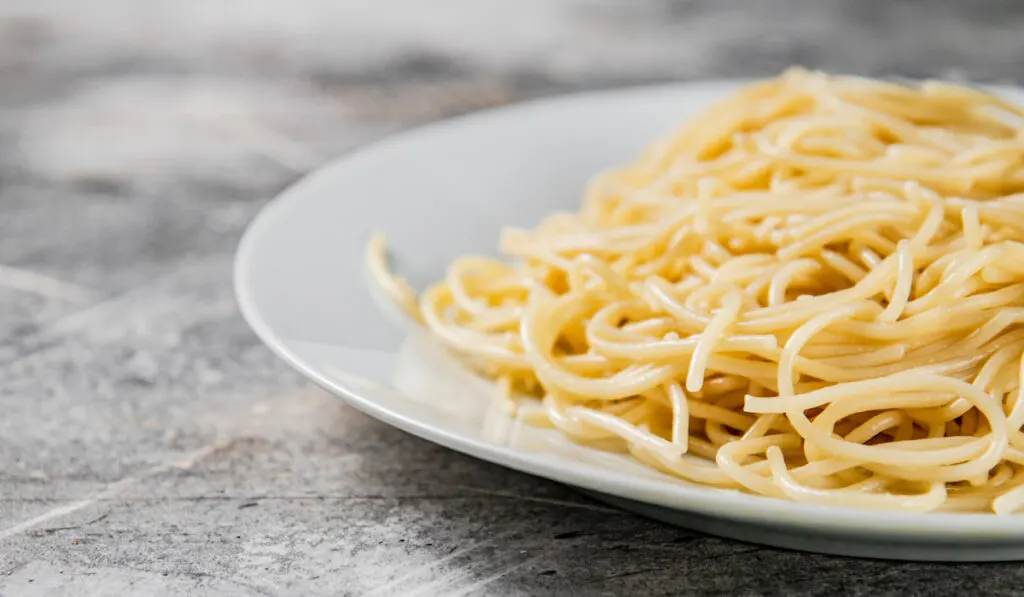
Pasta, either cooked or raw, should never go through the disposal. The reason is that both boiled and uncooked pasta will grow when they sit in water.
You never want to risk the pasta pieces becoming larger after they’re through the grinder and stopping up your pipes. It’s best to keep them in the trash instead.
Paper Towels
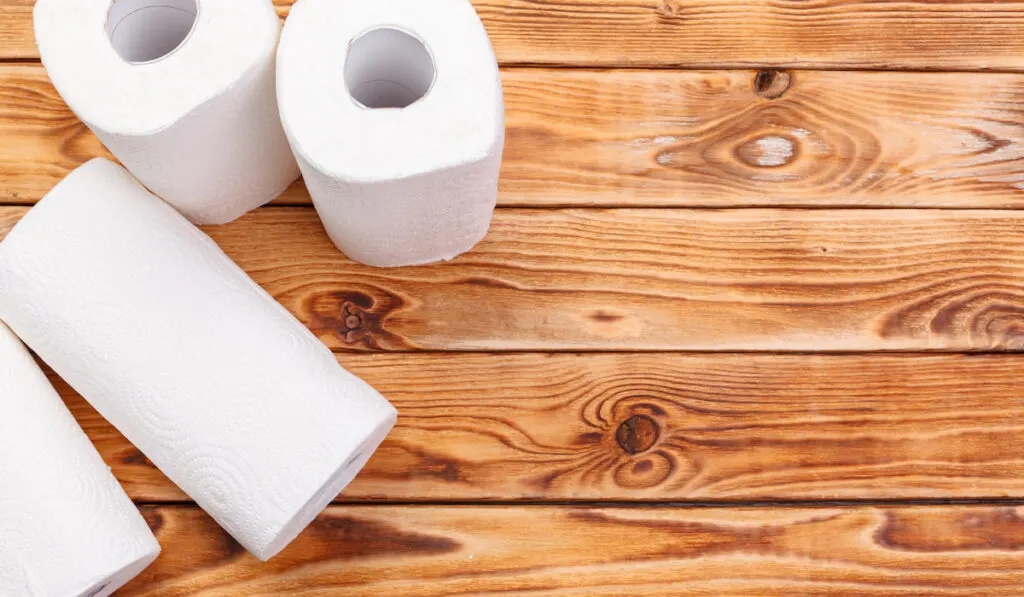
In general, no trash should go into the garbage disposal. We know this sounds a bit strange, primarily since most people treat food scraps as trash. Still, sticking things like paper towels, wrappers, etc., into the disposal is a quick way to damage it.
For example, paper towels become stronger when wet, and they tend to wrap around the components of the appliance, making it harder for them to move as quickly. There’s also less room for small food scraps to get inside where they need to go.
Potato Peels

Avoiding foul smells is one of the biggest reasons not to put potato peels in the garbage disposal. If you’ve ever left potato peels in your garbage can for more than one or two days, you know what we’re talking about. Rotting potato peels smell awful.
If some peels get stuck on the walls of your drain or in the appliance, it will make your entire kitchen smell foul. Instead, keep them in a small plastic back in your sink and tie the bag off before you throw it in the trash. This will keep the smells out.
Onion Skins

Like egg membranes and paper towels, onion skins tend to get stronger and sinewy when soaked in water. As a result, when you put large pieces of onion skin down the drain, they can wrap around the disposal components and damage them.
By keeping these eleven things out of your garbage disposal, you’re more likely to get years of better performance from your appliance.
Your kitchen will also smell better, and you’ll avoid expensive plumbing repairs for things like clogged drains. Make sure you, your friends, and any family living with you understand what can and can’t go in your disposal.
Non-Food Items
Don’t put anything in your disposal that’s not food scraps. Even if what you want to throw in there is soft, you never know how your appliance will react.
Garbage disposals are specialty machines made specifically to process soft food scraps. Anytime you go outside of that, you’re asking for trouble.
Keep anything that’s not food in the trash instead of putting it in the garbage disposal.
Remember, garbage disposals are dangerous. If you make a mistake, ensure the appliance is off completely before you try to fish anything out of there.
When in doubt, call a plumber you trust to come fix things to keep your appliance in good condition.
